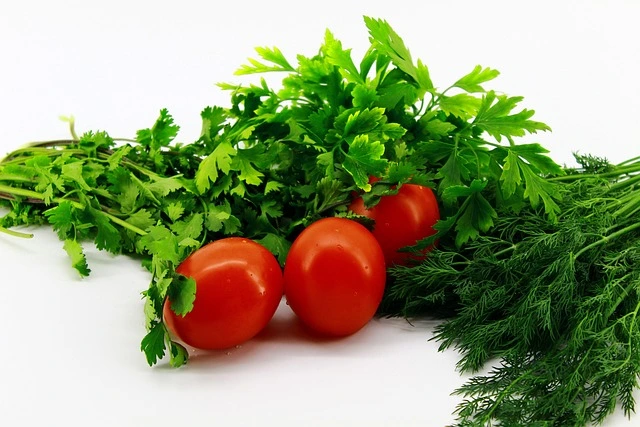Embarking on a weight loss journey can often seem daunting, especially when the idea of strict dieting or intense exercise routines feels overwhelming. Fortunately, there are effective strategies to shed those extra pounds without the need for rigorous workouts or restrictive diets. This article delves into proven ways to lose weight without exercise or diet, offering practical tips that seamlessly fit into your daily life. Whether you’re looking to manage your weight for better health or aiming to prevent weight gain, these insights will empower you to achieve your goals sustainably.
What defines Weight Loss, and why is it relevant?
Total body mass reduction, mainly through fat, muscle, or water, is commonly known as weight loss. Keeping a healthy weight is essential for your overall health since an excessive amount of weight can trigger health problems, including obesity, type 2 diabetes, heart disease, and specific cancer types. A weight loss plan that works yields changes in appearance alongside improvements in both confidence and vitality, eventually leading to a better overall lifestyle.
Realizing the processes that trigger weight loss can lead to more effective decision-making. Weight loss happens when there’s a caloric deficit, meaning you eat fewer calories than your body uses. Variation in eating behavior, more excellent exercise, or a combination of the two strategies. For those who might not be inclined to follow workouts or rigid diet plans, original options that are equally effective for encouraging weight reduction exist.
How Do You Shed Extra Weight Without Getting Into Exercise?
Weight loss can occur without exercise, which can be achieved by examining dietary choices and changing some lifestyle elements. Improving your health can be made simpler by committing to eating less overall. This doesn’t require a rigid diet; it means pursuing more prudent food selections that automatically limit your calorie consumption. Adding many whole foods—including fruits, vegetables, lean proteins, and whole grains—to your eating plan can keep you full for hours and lower the chance of overeating.
An extra effective technique is to exercise portion control. Small plates may trick your brain into thinking you’re having a lot, which lets you keep caloric intake to a minimum but still brings satiation. In addition, watching your eating patterns—eating more slowly and without distractions—can raise satiety and stop unnecessary snacking. These fundamental transitions can majorly affect your weight management plans, all without the demand for strenuous physical workouts.

The role that diet plays in controlling excess weight.
Your diet has a significant impact on weight loss and overall health. While it is common to associate the word ‘dieting’ with structure, regulated meal schedules, and calorie counts, a sustainable diet concentrates much more on food quality than food consumption. Eating multiple nutrient-dense foods assures that your body is provided with the vital vitamins and minerals it needs to perform at its best.
For those seeking weight loss assistance, work towards a diet substantial in fiber and protein to achieve a greater sense of fullness and lessen those hunger cravings. Adding fiber-rich foods such as vegetables, fruits, legumes, and whole grains to your diet is essential to keep you satisfied for a longer time and reduce overeating. In a way, protein provides muscle support. It simultaneously raises the thermic effect of food, which means your body consumes extra calories in digesting protein rather than fats or carbohydrates. Emphasizing these macronutrients as a priority will allow you to create a weight-loss diet that is sustainable for your energy and advantageous for your overall health.
In what way do sugary drinks impact your hard work in losing weight?
Sugary drinks, including sodas along with fruit juices, considerably add to weight increase and can thwart your weight loss aims. These drinks supply many empty calories, giving small nutritional returns and boosting your daily caloric intake. Taking in sugary drinks frequently may cause an imbalance in calories, and if you do nothing to manage this with increased exercise or adjusted meals, you will experience weight gain.
Beverages high in sugar may also increase blood sugar levels, which can lead to hunger and a desire for snacks all day long. Consuming drinks abundant in calories and then eating a lot can complicate the maintenance of a negative calorie balance intended for weight reduction. Drinking water, herbal teas, and other low-calorie drinks might help you decrease your calorie intake and support your weight management.
For More Information: How to Check for Bed Bugs in your Home | Signs of Infestation in Your Mattress
Does eating off a smaller plate support managing the amount of food consumed?
Small plates, properly used, can keep you aware of how much you are eating and support your weight maintenance. This method makes use of the psychological element of eating by indicating that the dimension of the plate can determine how much food you present to yourself. Several research pieces demonstrate that folks tend to completely load their plates, regardless of size, so using a smaller plate can help to naturally limit portions without the requirement for detailed calorie monitoring.
Consuming meals on smaller plates causes your brain to believe the plate is completely full, which heightens your satisfaction while eating smaller portions of food. The method helps to fallow reducing calorie intake and encourages mindful eating, helping you to experience your meals without the stress of overeating. Making this habit part of your day can markedly improve your weight loss and weight management accomplishments.
What Defines Mindful Eating and How Does It Support Weight Loss?
Mindful eating is a technique that requires total awareness of the experience of consuming food and drink as it applies to the body and its environment. It emphasizes that it’s important to allow time to enjoy every bite and pay attention to both your hunger and satiety signals and to emotional cues that cause you to overeat. Developing a productive food relationship is important for reaching sustained weight loss, and mindful eating practices will be useful for this goal.
Practicing mindful eating helps you recognize if you are hungry or eating due to emotional stress or boredom. This awareness might support us in stopping snacking and overeating, which don’t have a pressing need and will reduce the number of calories taken in. Awareness of your eating improves your taste experience with food, enhancing your gratitude for the flavors and textures, which leads to less cravings for more food. Worthy of attention, reflective eating can be an efficient approach to losing weight.

What Significance Does Emotional Eating Have on Your Weight?
The tendency to eat depending on emotional prompts rather than on physical hunger is known as emotional eating. This behavior could significantly affect your weight by contributing to the uptake of comfort foods rich in calories that supply transient comfort from negative emotions. When this happens, this coping strategy regularly turns into overeating, which causes an increase in weight and makes it hard to maintain a healthy weight.
Forming successful weight management strategies requires knowledge of where emotional eating comes from. Frequently occurring triggers are stress, boredom, anxiety, and sadness. Practicing activities that give you relaxation or cultivating your connections with loved ones may help remedy emotional eating problems. When you examine the fundamental emotions shaping your eating patterns, you can develop a more sustainable method of eating that also helps enhance your weight loss results.
What Makes Eating More Fiber Helpful for Weight Loss?
Adding more foods high in fiber to your diet is a highly useful method for supporting weight loss. When consumed, fiber increases the bulk of your dishes without increasing your calorie intake, helping you stay full for a more extended time. The feeling that is continually there decreases the likelihood of indulging in excess eating and snacking between meals, which supports achieving a needed caloric deficit for successful weight loss.
Fiber is vital in blood sugar management because it delays both the breakdown and absorption of sugar. This method stops insulin spikes, which can start fat storage along with heightened senses of hunger. What’s more, a diet rich in fiber helps maintain gut health by stimulating routine bowel activity and preventing constipation. ested in a range of fiber sources, especially vegetables, fruits, legumes, and whole grains, you are probably going to see improved weight management and better overall health.

Which Lifestyle Changes Are Useful for Successful Weight Loss?
Effective weight loss usually consists of extensive lifestyle modifications that transcend just how you eat and work out. Improvements might mainly aim at increasing the quality of sleep, learning stress management, and making the shift to healthier eating. Having the right amount of sleep is important for maintaining a healthy weight because poor sleep quality has been shown to alter appetite hormones and increase calories eaten.
It is important to manage stress successfully; chronic stress may contribute to emotional eating and eventually result in increased weight. Adding meditation, yoga, or breathing methods could help you maintain emotional steadiness while you attempt to lose weight. Who knew that simple things like meal planning, domestic cooking, and saving yourself from boredom eating could contribute to a better weight loss regimen?
What Contribution Does Enhancing Our Sleeping Hours Have on Keeping a Healthy Weight?
Sufficient sleep is a key but frequently ignored aspect of managing weight. A short amount of lapse in attention to rest might throw off hormones responsible for food cravings, including ghrelin and leptin, which can increase the overall appetite for calorie-dense foods. Your body responds to a lack of sleep by demanding additional energy, typically appearing as a desire for calorie-dense foods and occasionally leading to weight gain.
Inadequate sleep also usually triggers a decline in energy levels, making exercise and an active lifestyle more difficult to maintain. Decreased activities can further obstruct weight loss endeavors by reducing total calorie burn. Achieving 7-9 hours of sleep each night as an adult is linked with benefits to weight management through regulating hunger hormones, improved metabolism, and better energy levels.

Key Takeaways
- Caloric Deficit is Key: Weight loss, primarily free of exercise, depends on consuming fewer calories than you burn.
- Portion Control Matters: The use of petite plates might help lower both consumed portions and calories.
- Limit Sugary Drinks: Either cutting back on or eliminating sugary beverages can significantly decrease your calorie consumption.
- Incorporate Fiber and Protein: A diet rich in protein and fiber helps satisfy your appetite while allowing you to feel full.
- Practice Mindful Eating: Presence throughout meals helps us avoid overindulging and increases our satisfaction experience.
- Manage Emotional Eating: Identifying emotional triggers helps to stop uncertain snacking and overeating.
- Prioritise Sleep: The amount of sleep you get affects hunger hormones and is important for managing your weight well.
- Adopt Sustainable Lifestyle Changes: Preserving a successful weight loss experience requires following gradually healthy practices rather than chasing quick fixes.
- Choose Whole Foods: Concentrating on whole, minimally processed foods increases diet quality and supports weight loss.
- Stay Hydrated: Drinking water before a meal may help lower calorie intake and provide a feeling of being full.
Applying these valid strategies allows you to drop excess weight unrelated to strenuous physical activity or a rigid diet. These total approaches will support your weight loss ambitions and enhance your healthy and harmonious lifestyle.
Read More: Top 10 Essential Minerals for a Healthier You
Lose Weight Without Exercise: Focus on Whole Foods, Portion Sizes, and Eating Without Distractions”
Losing weight is a common goal, & many people seek a way to lose weight without the traditional methods of exercise/ strict dieting. While exercise is usually linked to weight loss, there are too much other ways to help you lose weight without exercise. Incorporating fiber-rich foods into your diet is great way to lose weight without diet or exercise. Moreover, getting more sleep can significantly aid your weight loss journey, as adequate sleep is necessary to lose weight & reduce risk of weight gain. Drinking water can help you lose weight by promoting healthy eating habits, and eating your food slowly may help you enjoy a variety of foods while ensuring that you feel satisfied. Remember, lifestyle changes can help you lose weight without exercise and are likely to stick over time. Following the dietary guidelines for Americans can further support your weight loss journey, providing a solid foundation for healthy eating. As you explore these methods, links on this page may earn a small commission, ensuring our content is accurate and current, backed by academic research institutions focused on effective weight loss strategies.
Effective Weight Loss: Eat More Protein, Control Fat Intake, and Cut Soda or Juice for Lasting Results
Reducing distractions while eating is key to losing weight without diet or exercise. Eating without distractions helps you be more mindful of your food, making it easier to control portion sizes. Many other weight loss strategies, such as eating at home, cutting back on soda or juice, and choosing healthy fats like olive oil, can also contribute to your weight loss journey. These lifestyle changes may help prevent weight gain and lower the risk of obesity and type 2 diabetes. Weight loss efforts don’t always require drastic measures; small, sustainable changes can lead to effective weight loss over time.
FAQs
1. What link does drinking water have with weight loss?
You can use drinking water to help with weight loss by increasing your metabolism and lessening your feelings of hunger. Drinking water prior to meals can lower your appetite, which leads to various weight loss benefits. In addition, staying properly hydrated is important for total health conditions and can help in preventing weight gain risk.
2. Does having enough sleep help with weight loss?
Of course, having enough sleep is necessary for keeping a healthy weight. Lacking sleep can adjust hormones related to hunger that typically cause a larger appetite and eating more food. Having enough exercise is key, but giving precedence to sleep can also be a smart way to manage your weight.
3. What relation do eating slowly and weight loss share?
Slowing down your eating enhances your body’s ability to identify satiety signals, perhaps stopping you from overeating. Participating in this timeline could be necessary for decreasing total calorie intake, which is advantageous for weight loss by making little changes to one’s food.
4. What part does controlling the amount you eat play in weight loss?
Achieving calorie management is contingent upon your knowledge of portion control. Being aware of your food portions allows you to savor a range of cuisines without Qualifying your foods without overindulging. Using this technique allows you to carry on with sensible eating and shedding pounds without needing to change much.
5. Are strategies for managing stress able to contribute to weight loss?
Absolutely! Having stress can trigger emotional eating that could in turn result in adding pounds. Utilizing makeshift or yoga might support your effort to manage cravings and keep a healthier lifestyle. This is one of the many other approaches to enhancing weight loss without changing your dietary or exercise habits.
6. What role does mindful eating serve in weight loss?
The practice of mindful eating asks you to really focus on the experience of eating, recording flavors, textures, and body hunger cues. Nurturing a good connection with food can help you achieve your weight loss ambitions through this exercise.


